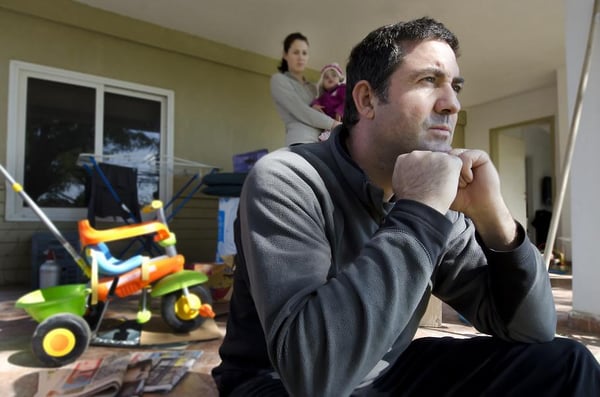Published on
Are Middle-Income Students Falling Through the Cracks?

The following interview is with Sarah Brelvi, chief professional officer and director of the Women’s Leadership Council at the United Way of Northern New Jersey. Brelvi’s chapter of the United Way provides an annual scholarship to help women non-traditional students with the costs of completing their higher education. In this interview, she discusses the difficulties adult students face when they seek out financial assistance for college or university, and how adults can be penalized when they earn a menial household income.
1. What are the most significant challenges adult students, especially women, face when considering enrolling at a college or university?
I would think funding. The cost of higher education, as we all know, is exorbitant and it continues to grow. So when a woman, an adult student — we’ll call her “non-traditional student,” — is looking to either begin her education or continue it or actually enhance upon it, she faces many different challenges. The funding challenge is one.
Another is her self-esteem. Has she been in a situation where she’s been in the higher education realm? Is this going to be a new step for her? This is a huge transition if you have not been involved with studies, and applying yourself and being disciplined in that mode it is a huge transition.
Another piece is looking at the family situation. If an adult woman is going to start her education, many times she has children in her life; her family situation. So, not only, “How is she going to juggle her school schedule?” and she possibly has some type of employment, so now she’s looking at her employment job, she’s looking at her school schedule, her children’s school schedule. … Women are always juggling many balls in the air at one time. So that could be, initially, a barrier where a woman would say, “Well, I really want to do this but it’s just going to be too much for me. I can’t really put myself into that situation. I have too many demands of my family at this time.”
Those are decisions she needs to make. But what is the most rewarding for young families is when they have an adult that is going to college and sitting down and doing their homework at the same time; that is setting an example for that family that mom, dad can do that also. “We’re all doing our homework together. We’re all getting our grades together. We’re all celebrating all of our accomplishments.”
2. When it comes to the financial burden of enrolling, specifically, what kinds of support mechanisms are in place for adults to turn to?
The financial burden support mechanisms other than scholarships are mentoring programs.
The United Way of Northern New Jersey has a very strong mentoring program through our Women’s Leadership Council where we, as council members, are trained through an extensive 12-hour volunteer training program to serve as a mentor in the lives of others. We learn what our barriers are when we’re working with a mentee, a woman that’s coming into the college for the first time in her life, receiving a scholarship from us and we sit down with her and we find out: what are her goals? What are some of the barriers that are keeping her from attaining those goals? And, then, when we start to talk about those barriers that she may have — some of them may be personal — and we need to know as a trained volunteer that we don’t, when we mentor someone, we’re not mentoring them on a personal level; we’re mentoring them on a professional level. …
Often, people do not realize the resources that are available to them. They’re deep in the woods in their own personal situation and when you have someone that’s looking through those trees into those woods, they’re most likely to see that there are options [but] the person that’s in the woods are not going to see those options.
The financial barriers are also … in place; the burden of them enrolling. So, we look at enrolling and we look at some women that are in transition in their lives. These women have worked previously …, or they never did have a job outside of their home and now they, for personal or financial reasons, need to come into the workforce. Their husband just left or lost his job [and] his unemployment [insurance] has run out. Many times through the unemployment, the person that’s collecting is able to receive ongoing training for new skills, but that other spouse may not be. So, now she’s saying, “All right, I need to be trained in a skill.” So, she’s going to look to come into a continuing education program. I’m going to use the example of a pharmaceutical technician — that might be one of the areas that someone is gravitating to. Well, when she goes to look for enrolling, there are no available funds to do that. And that’s what our scholarship provides. Our scholarship provides funding for women that are in transition in their lives and they need to have funding to start their continuing education programs. It is not solely based on what their taxes report, last year’s income tax reports, as the annual household income. It’s based on what the reality of the financial situation in that household is now.
3. What are some of the major challenges adult students face when seeking out support mechanisms for their financial burdens?
As I said, they need to have scholarships. It’s very daunting for people to take on student loans, not knowing where they are going to land.
So, with the adult students, we look to be able to provide financial assistance, not only through our scholarships. … We look, again, to the mentoring program. When we’re looking at these barriers, what resources are available? And through our scholarship program where we have available financial resources, we’re able to look to provide some of that funding.
Recently a woman just graduated with her degree as a pharmaceutical tech, and that was through our scholarship program, but she doesn’t have the available funds for her license. So, we’re providing the funding so she can sit to take the exam so she now can become licensed. Because the degree that she has is not going to be beneficial unless she has the license to practice.
So those are some of the challenges for financial support for higher education. I was just looking at the average costs of colleges and how … many of them have had an increase this past year. Well, that increase may not have been built into someone’s personal budget for their school. So, when that increase occurs, then they are again going to look and see what financial resources they have available. And those are barriers and those can keep people from not going to school, not completing their education. And we surely don’t want to see that.
4. You mentioned the challenges that can come from a household income changing from one year to the next and the impact that can have on a student’s ability to receive financial aid or be eligible for various scholarships. Have you seen those come up and how did that student get around that issue?
Yes, I see too much of it.
I was speaking with a student just the other day who has really brought her life around full circle. And she has completed her associate’s degree and she would like to continue on for her bachelor’s degree but, right now, she can’t, so she did sit for a license for a specific industry and now she’s working in that industry. I worry about that because an associate’s degree is a great start, but the bachelor’s degree is a requirement and now she’s in a situation where, luckily, she is earning money and providing for herself and her son. But she could get into a quagmire where she’s stuck. This income, luckily, is providing for her and she’s going to say, “It’s too difficult to go to college because I don’t have that extra income, I don’t have that extra support.”
When we look at the amount of people that have been laid off and the fact that the job market continually changes … people need to look at all of these types of indicators. If you are looking for a job now and you are going to look to be reeducated, you want to look at what industry the growth is occurring in. … So, you would have to look at say, “Do I have the skills, do I have the interest, to go into those industries? If I don’t, what are the other industries and what is available to me that is going to be able to sustain my family and myself so I am economically self-sufficient?”
I look to be sure that people are going to be economically self-sufficient; where they’re going to be able to pay their bills, have some savings — I’m not talking about a great amount of savings — but I’m talking about savings where, at the end of the day, when the car breaks down, they’re going to have that money available to them to fix the car so they can go to work the next day.
We have a study called ALICE — it’s an acronym for Asset-Limited, Income-Constrained and Employed — and it is a lens on households. The study right now is complete for the full state of New Jersey and it looks at 29 percent of the households in New Jersey [and how they] are not able to make their ends meet. They are living paycheck-to-paycheck; they don’t have additional savings. And … out of that 29 percent, there are many households that don’t have the opportunity [to get financial aid] because of the income that they are bringing in, an income of over $23,000 a year. The poverty level for a family of four is $23,000. That family of four [with] the poverty level of $23,000 is more than likely to be able to receive government assistance, financial assistance, Pell Grants, things like that. When you are earning $24,000 to $50-60,000, that is where you fall into the area where you are living paycheck-to-paycheck — just making ends meet — and that is with two heads of households is working. When one of the heads of household loses their job, where do they turn? Where is their safety net? There is not a safety net built in. And that’s why having an education, a certification, a skill, is mandatory. It’s not important; it is mandatory.
5. Is there anything you’d like to add about the importance of providing these financial support mechanisms for adult students and the challenges they can run into in trying to secure financial support?
The challenges are daunting. Again, I’m going to go back to working with a mentor and looking with the mentors and your resource network to find out … what is available to you. Don’t put the financial barrier upfront. Keep moving on and have the self-confidence. If you’ve gotten to the point where you’re saying, “I’m ready to go and continue or start my higher education,” you’ve already taken that giant leap, and you need someone to walk with you while you do that to encourage you on, celebrate it.



